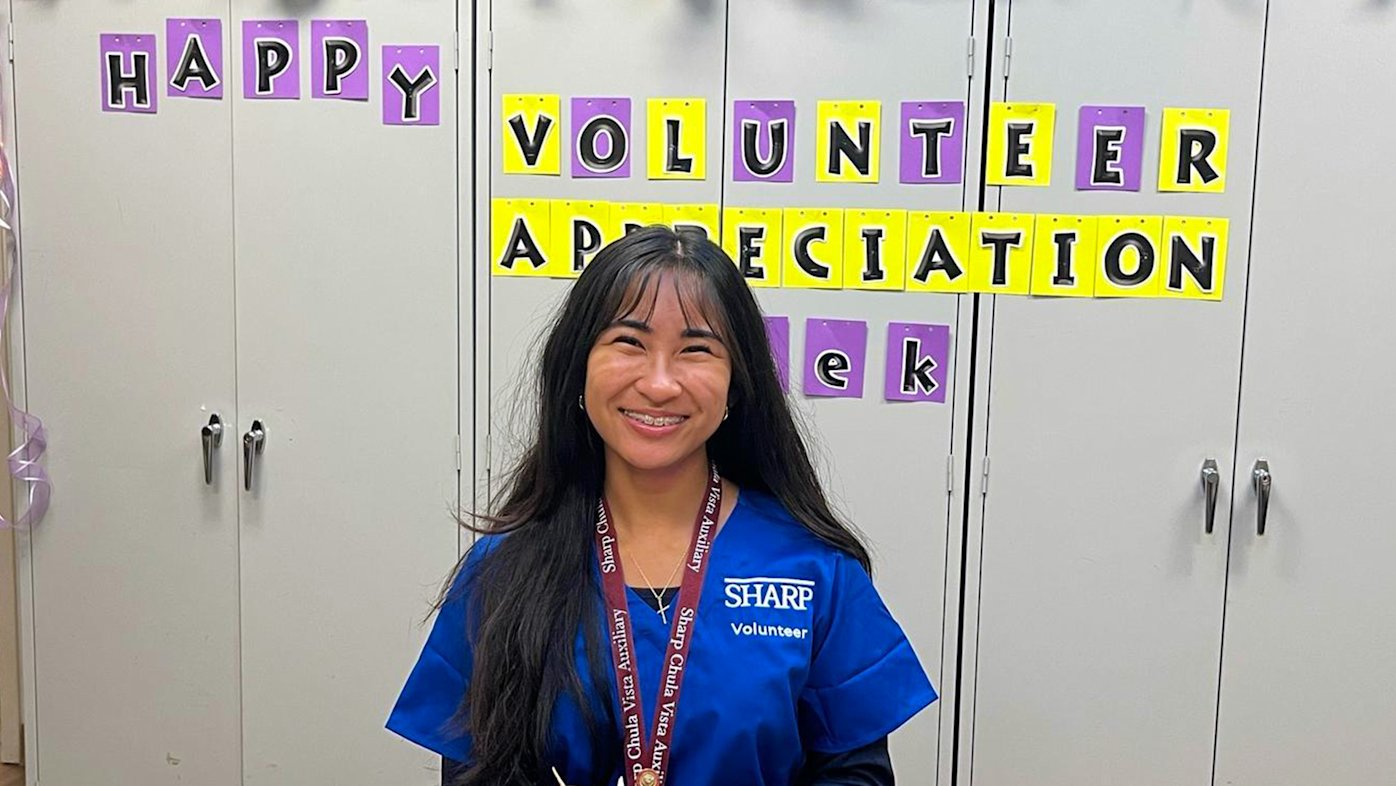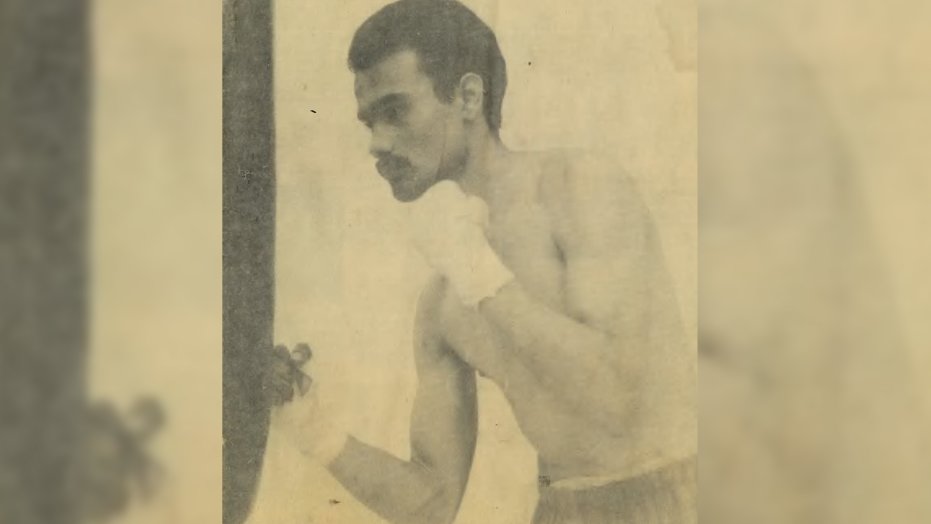
Student volunteer brings joy with wishing cranes
Carefully folded origami cranes carry messages of hope and healing, as one teen volunteer helps brighten patients’ days at Sharp Chula Vista Medical Center.
"Cancer is my new opponent, and this is just round one. Cancer is not going to knock me out." These were the thoughts of former boxer Raymond “Ray” Quiroz upon learning his cancer diagnosis.
Ray grew up in Los Angeles and has been a resident of San Diego for over 30 years. He works in the facilities department at Sharp Chula Vista Medical Center and has been both a patient and employee of Sharp HealthCare for 14 years. Ray loves working at Sharp and feels proud to do his part in keeping the hospital running, contributing to saving lives and giving back to the community.

Former boxer, Ray Quiroz, vows to continue to fight for a world without colon cancer.
In February 2019, Ray was diagnosed with stage 3 colorectal cancer, which came as a surprise to him, as he had no symptoms other than heartburn and a sore throat. Despite observing patients getting cancer screenings while working at the hospital, Ray never felt the need to make an appointment himself.
That all changed when Ray’s physician said he needed a complete battery of tests, which came back with the surprise of his life: He had colorectal cancer.
Ray’s treatment included surgery to eliminate 35% of his colon and rectum. After, he received 12 rounds of chemotherapy.
Screening saves lives
Just as Ray experienced, colorectal cancer often progresses with minimal or no symptoms. Once symptoms are noticed, the cancer has typically reached an advanced stage.
That's why regular screening is so important, he says. Up to 90% of colorectal cancer cases can be prevented or successfully treated when the cancer is detected early.
Everyone has some risk of colorectal cancer — also known as colon cancer — but individuals with a family history or certain health conditions, such as ulcerative colitis or Crohn’s disease, may have a higher risk. While screening is the best way to detect colon cancer and have the best chance at successful treatment, preventive measures — maintaining a healthy weight; staying physically active; limiting alcohol consumption; refraining from smoking; and eating a high-fiber, low-fat diet — can reduce the likelihood of the disease.
The key role loved ones play
Throughout his treatment, Ray's loved ones wanted to support him. They offered to shave their heads to show their solidarity. Ray remembers being humbled by the offer but told them no. “Go get screened for colorectal cancer instead,” Ray says he requested instead.
According to Dr. Andrew Bruggeman, radiation oncologist and co-medical director of the Douglas & Nancy Barnhart Cancer Center at Sharp Chula Vista Medical Center (who did not treat Ray), support from loved ones is incredibly important when patients are going through cancer treatment. “Multiple studies have demonstrated that those who feel well supported have improved quality of life and better outcomes,” he says.
Ray said that during treatment, he chose to stay busy, avoid self-pity and focus on the good he could do. Today, he is back to work fixing things at the hospital and sharing his important message: Regular cancer screenings save lives.
Learn more about colorectal cancer; get the latest health and wellness news, trends and patient stories from Sharp Health News; and subscribe to our weekly newsletter by clicking the "Sign up" link below.
Our weekly email brings you the latest health tips, recipes and stories.